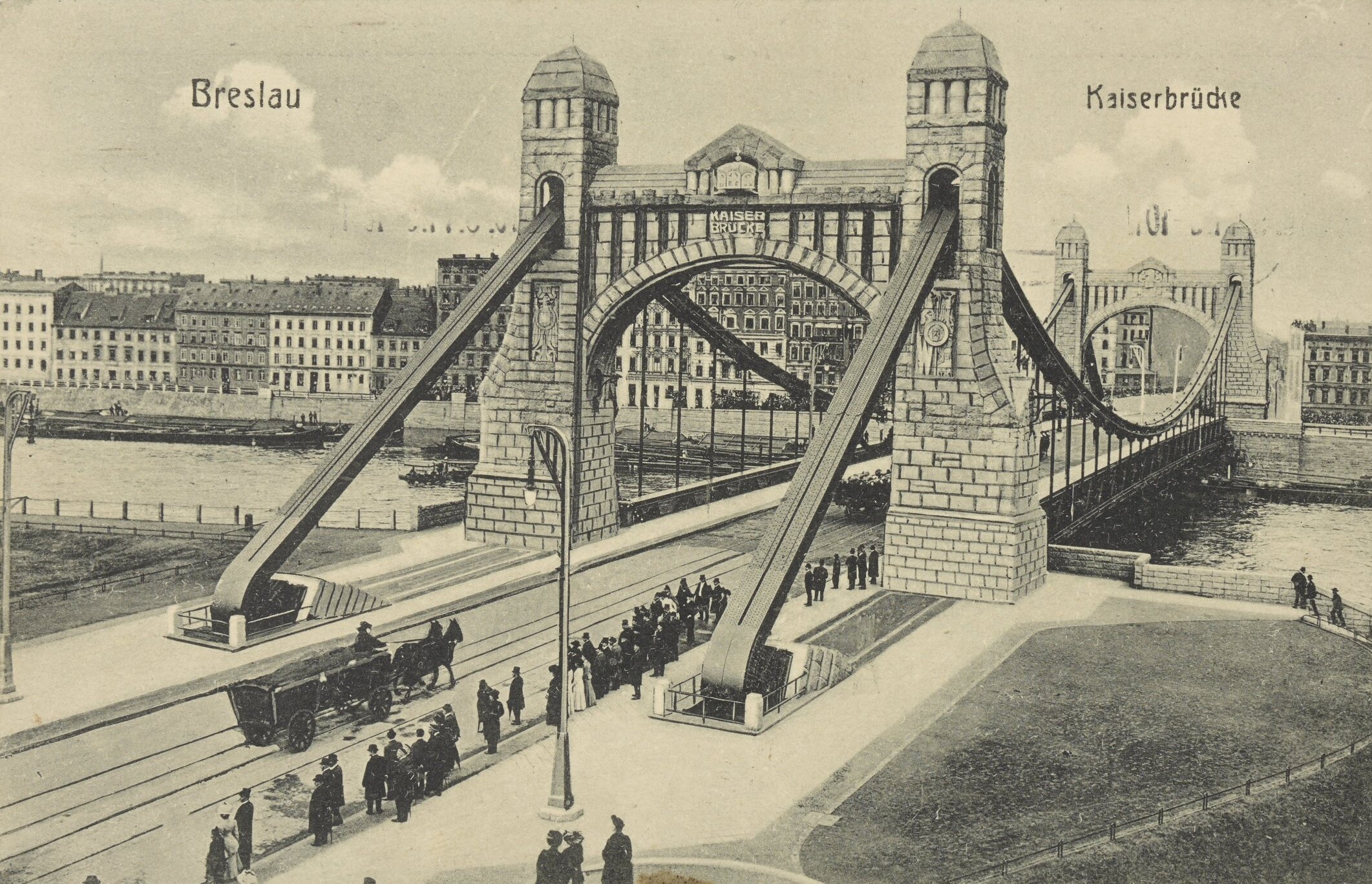Controversy over proposed return of German “Kaiser” sign atop Polish bridge

The restoration of a historic bridge in the Polish city of Wrocław has stirred controversy after it emerged that the plans may include returning a sign in German referring to its original name of Kaiserbrücke (Kaiser Bridge) from when the area was part of the German Empire.
The local authorities have confirmed that they intend to restore original elements of the bridge, though it remains unclear if the Kaiserbrücke sign will be restored. They have also denied “fake news” circulating online that the bridge’s name will be changed back to the old German one.
The bridge in question was opened in 1910, when the city was part of Germany and known by its German name of Breslau.
At the time, Poland did not exist as a country, having been partitioned since the late 18th century between Prussia (later Germany), Russia and Austria. Only in 1918 did Poland regain its independence, although Breslau subsequently remained part of Germany.
In 1945, as part of the post-World War Two settlement, the city was transferred to Poland, since when it has been known as Wrocław. Meanwhile, the bridge was renamed Grunwald Bridge, in honour of the 1410 battle at which Poland defeated the German Teutonic Order.
This week, reports began to spread that, as part of a planned renovation of the bridge, Wrocław would restore some of its original elements, which were removed after the war, including the Kaiserbrücke inscription that once appeared atop the structure

A 1911 postcard showing the bridge in its original form, with the Kaiserbrücke inscription visible at the top of the structure (source: Biblioteka Narodowa, under public domain)
Among those to raise concern was Łukasz Kasztelowicz, head of the delegation of the national-conservative Law and Justice (PiS) party on Wrocław city council. PiS, which is the main opposition party at the national level, often seeks to oppose what it claims are efforts to exert German influence over Poland.
“The restoration of elements such as the imperial eagles, the Hohenzollern coats of arms and the Kaiserbrücke inscription raises serious concerns about unnecessary references to the [bridge’s] German past, which could be perceived as an attempt to ‘Germanise’ its character,” said Kasztelowicz. “I strongly oppose this.”
He described Grundwald Bridge as a “symbol” of Wrocław, “with profound historical and identity significance for its residents”, and noted that its “current shape, formed as a result of post-war reconstruction, reflects the city’s Polish history and the efforts to rebuild after the war”.
In response to the controversy, the municipal roads authority, which is responsible for the renovation, told local newspaper Gazeta Wrocławska that it is the provincial conservator of monuments who is responsible for approving decisions regarding restoring historical elements of the bridge.
The conservator, Daniel Gibski, in turn released a statement saying that the plan to restore the bridge to its original character was commissioned by the city council.
“Restoring the original character of monuments is a perfectly justified, conservation-oriented action and, importantly, completely apolitical,” he added. “Any attempt to involve this in political games should be assessed with reprehension, as an action straight from a bygone era.”
Meanwhile, both Gibski and Wrocław city hall, which released a separate statement of its own, denied claims circulating online that the official name of the bridge would also be changed.
Right-wing broadcaster Republika, for example, published an article headlined: “Wrocław: Germanisation in full swing. Grunwald Bridge will be no more. Kaiserbrücke is returning.”
In its statement, city hall confirmed that, while the bridge’s name would not change, “as part of the planned renovation, selected historical elements will be restored”. However, it indicated that a final decision on the Kaiserbrücke sign had not yet been made.
“The city of Wrocław respects its history and heritage, but does not forget about contemporary values and the social context,” wrote city hall. The renovation will not begin until 2027 at the earliest, reports Radio Wrocław.
Main image credit: Jar.ciurus/Wikimedia Commons (under CC BY-SA 3.0 PL) and DWKZ
notesfrompoland





